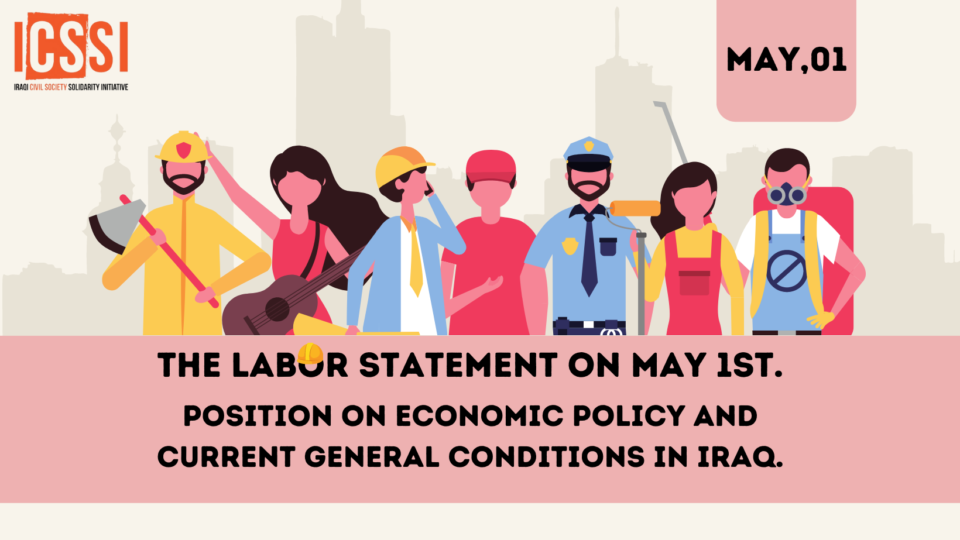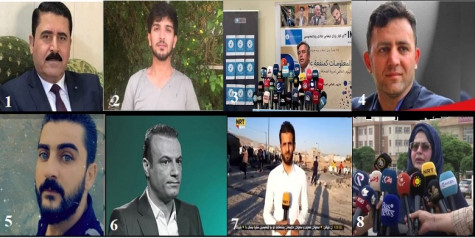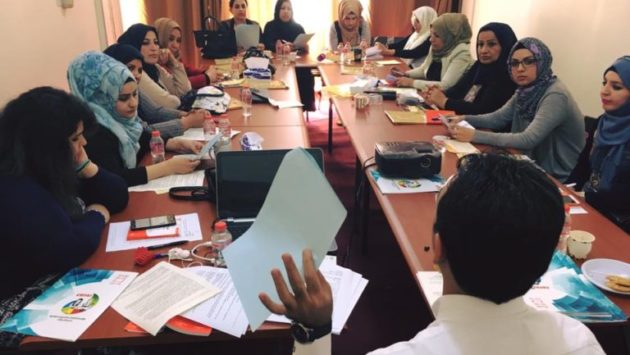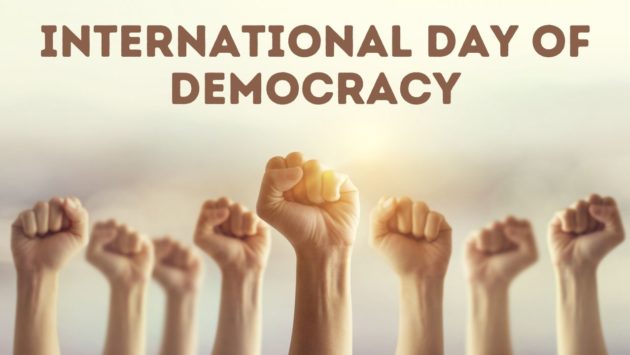The Labor Statement on May 1st.
Position on economic policy and current general conditions in Iraq.
The process of imposing new economic policies in Iraq, which the Iraqi government has been undertaking for years,is expanding and accelerating. Each time, these policies are given a different name and title to deceive and distract, but they carry the same content and substance.
Decisions and Economic measures are becoming more and more of a cover for organized looting and seizure, which has caused officials and influential individuals to acquire public properties and seize them through twisted means under the pretext of investment and partnership contracts. With the expansion and continuation of looting and seizure operations , the social impacts on the lives of millions worsen due to the plundering of public wealth, the expansion of corruption and its mafias and extensions, the suppression of protesters against corruption, and the domination of society’s wealth. With all of this, the daily life of citizens becomes extremely difficult. The social impacts of economic policies are manifested in the expansion of unemployment, shortage of public services, growing poverty, difficulty in obtaining decent housing, the decline and increased cost of education, deterioration of healthcare services, and the expansion of crime and lack of security.
All the difficulties resulting from the economic policy pursued by the political system fall on the shoulders of the workers, the working class, and the deprived, while a minority enjoys enormous wealth and extravagance that provokes the feelings of millions who live below the poverty line.
The targeting of public sector companies through liquidation and restructuring operations has been a focal point of the new economic policies advocates,after they disrupted major industries and projects under the pretext of their lack of economic feasibility, or as remnants of the outdated regime, despite the fact that they date back to earlier stages or being remnants of the planned economy that conflict with the market economy, privatization,trade freedom and pursued by the government..
All of the aforementioned operations are the imposition and implementation of the policies of the International Monetary Fund and the World Bank, which are the essence of global capitalist policies that work to maximize their profits at the expense of looting and impoverishing millions. The government, officials, and the influential figures in Iraq are partners of global financial capitalist institutions and representatives of their policies in Iraq.
The masses have expressed their opposition to government policies on numerous occasions, spanning over several years, and public sector workers have played a significant role in confronting these policies and the resulting social effects.
The Organization of scattered gatherings or protests in several cities has been an announcement of a general popular rejection of economic policies. However, organizing an effective movement that confronts decision-makers and policy-makers requires comprehensive preparation and organization, adopting a clear policy and defining it to the community, especially those suffering from the destructive effects of these policies.
The current economic policy represented by the white paper does not affect specific companies or sectors, and the process of restructuring companies and liquidating the public sector does not target a particular class or group of workers or employees. It is part of a general policy that affects the community’s life . It is a process of wealth redistribution, creating classes that own billions in exchange for millions of impoverished people. . Standing against it requires the intervention of those affected and victims of these policies, who are millions of hard workers. This confrontation requires a public movement to be organized.
The promises of reform, growth, and eliminating unemployment are just excuses used by policymakers in Iraq to pass their projects and keep the public from interfering or resisting policies that affect their lives and livelihoods.
The effects of these policies are not limited to the workforce or job market, but they strike at the core of family life, especially for those living in poverty. The hardest impact is most severe on women’s lives, where living difficulties, household shortages, and energy shortages increase. The inability to continue educating their children becomes a prevalent trait, as poor families are forced to leave school early to work, and girls are deprived of higher education due to poverty. Traffic signals are crowded with impoverished school-aged children selling goods to passersby. Meanwhile, women’s household burdens increase, and their cultural and intellectual levels decline.
Starting a public movement against the policies of the ruling power will open the door for many forces aspiring to rise and gain political prominence at the expense of popular movements. Many will raise general national slogans, at which point the popular movement will become a tool in the hands of those forces, which is possible. Therefore, it is not enough for the working class to call on society to confront the destructive social effects of economic policy.
The general objectives should be formulated, and the disastrous consequences of the capital policies imposed on society should be defined and clarified, along with the development of a comprehensive program and ways to solve and overcome the current crisis, and the mobilization of broader sectors of the people who are affected by economic policies. This is what must be done to block those who try to emerge in the name of the people and prevent the dispersion of the labor’ movement, and then turn it into a center and axis of the general protest movement.
Unifying the struggle against the policies of the International Monetary Fund and the World Bank, developing a class-based workers’ policy, and proposing a program to confront capital policies will build the political tool for intervention and highlight the political representative of the working class and the masses of the people in the face of current policies. It is essential that the deprived masses of the people have a representative from among their ranks who represents their interests and goals.
On May 1st of this year, the announcement of the workers’ policy against capital policies will take place directly on the ground. And since the world, especially the countries of the Middle East, Africa, Latin America, and Europe, are witnessing similar movements, we consider every confrontation with the policies of the World Bank and the International Monetary Fund to be a mutual strengthening and deepening of the workers’ struggle in Iraq and around the world.
What labor leaders have proposed during years of confrontation against privatization, structural adjustment policies, and neoliberalism imposed on society, forms the cornerstone for formulating a comprehensive labor program for the entire community in light of the current situation.
The working class is the representative of the actual interests of society in liberation,welfare, equality, and the abolition of injustice and discrimination.
Signatories:
The Federation of Councils and Trade Unions in Iraq
Iraqi Civil Society Solidarity Initiative




